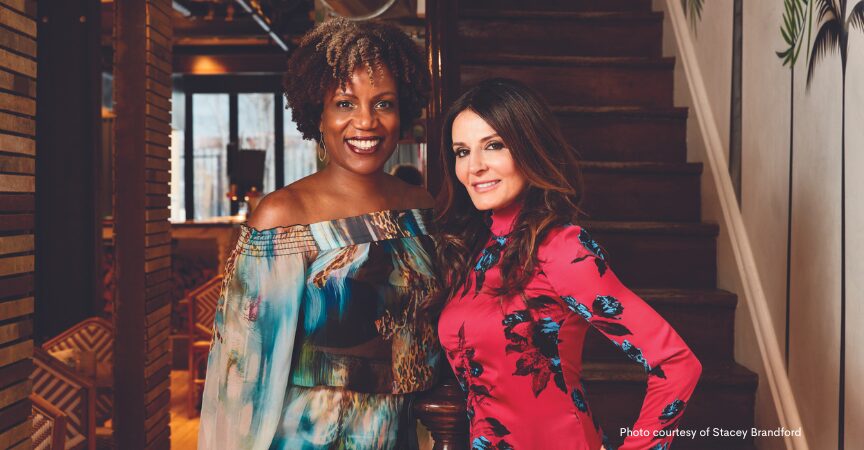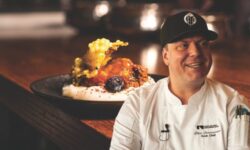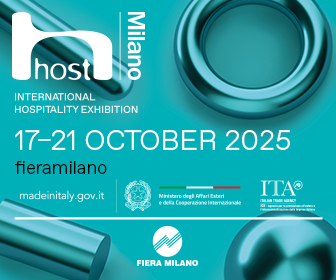MENU in Conversation with Angela Lawrence, Chief Culture Officer at Gusto 54
Angela Lawrence is the dynamic Chief Culture Officer at Gusto 54, renowned for her tenacious spirit, creativity and visionary leadership. With roots in magazine publishing and a penchant for storytelling, Lawrence’s career took a serendipitous turn from editor to the epicurean world as a natural extension of her long friendship with Gusto 54 Founder and CEO Janet Zuccarini.
Lawrence blends her creative flair with an entrepreneurial edge, fostering a vibrant workplace and championing accountability, not only across Gusto 54’s restaurant portfolio, but across the Canadian hospitality industry. As co-founder and brand director of Chubby’s Jamaican Kitchen, her role extends beyond head office as she curates not only exceptional dining experiences but also an inclusive environment where self-expression is encouraged, and potential is recognized and nurtured.
MM: We’re always interested in hearing the story of how influential leaders found themselves in the restaurant industry. When you were starting out, was this part of the plan or a happy accident?
Angela Lawrence: In my 20s, after graduating from university, I was really keen on being a magazine editor. I worked on the university paper and on a community paper during the summer. I’ve been fascinated with magazines from the time I was 12. I got a job working on Marquee, the movie magazine. Initially I worked for the company that published the magazine, but someone went on maternity leave, and I took over her role as the managing editor. It was great.
MM: From there, I understand you worked in Transcontinental’s magazine division and then moved into custom publishing for a marketing company that produced Home Depot’s magazine.
AL: Yes, and from there to working on the magazine for Kraft Foods, So I always saw myself working in magazine publishing. That was the vision, because I loved magazines and working in environments with smart people in a creative space.
I was managing a team and doing a lot of personal development and leadership training. I was getting better insight into what makes people happy at work, and how to tap into people’s creativity and talents.
I was also the founding president of the Canadian Association of Black Journalists at the time. I did a lot of things that were just really helping to build my leadership. At no time was I seeing myself working in the restaurant industry.
MM: So, you basically had a full career in publishing before even thinking about restaurants… At what point did the plot twist?
AL: I met Janet Zuccarini. We were in a leadership course together and became best friends. That was 23 years ago.
I got to watch her in the restaurant business over a long period of time. She hadn’t ever worked in a corporate environment, so she would come to me with questions about HR and other things, and I would give her advice from a corporate perspective.
I got to watch how she was able to use the training we had done around team building, management and leadership to create an amazing life for herself by empowering leaders in her restaurant. She was able to teach her team to run the restaurant like it was their own and that gave her a lot of freedom to travel.
MM: So, you were a kind of informal consigliere to Janet at that time, bringing aspects of what you knew to her journey, while she was exposing you to the restaurant industry. How did you end up working together? Was this something you talked about for a long time or was there a moment of mutual realization that this was right?
AL: We had talked about working together for a long time, but we never thought it was going to be in the restaurant industry because at that time, Janet didn’t have any plans to operate more than one restaurant. The idea was more like, “Let’s start a business together – wouldn’t that be fun?” We had all kinds of crazy ideas.
Eventually, Janet bought the building Gusto 101 is in now. She told me she’d open the restaurant in a matter of months, but it took three years.
The restaurant was immediately successful–so so successful that she needed help answering the phone. I had some time, so I said, “Yeah, I can come for two weeks or so and help you answer the phone and I just never left.
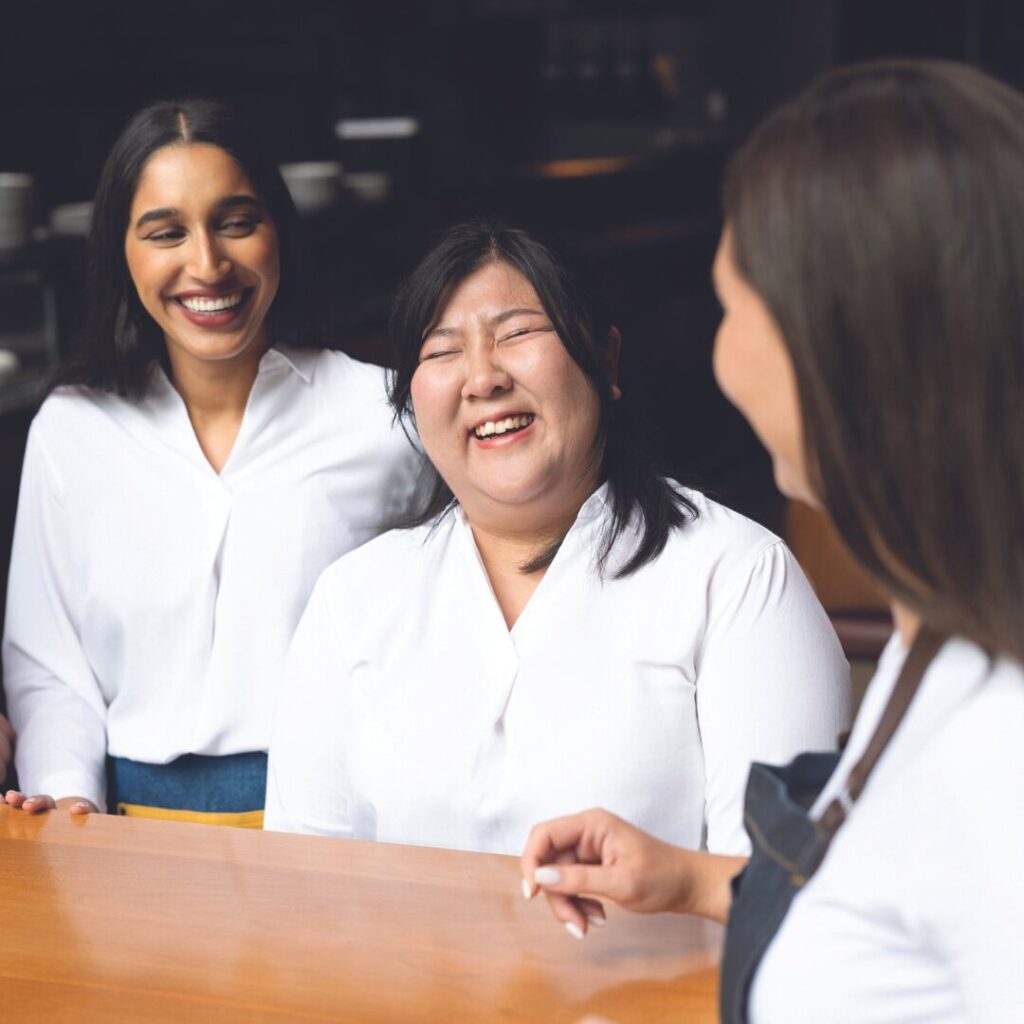
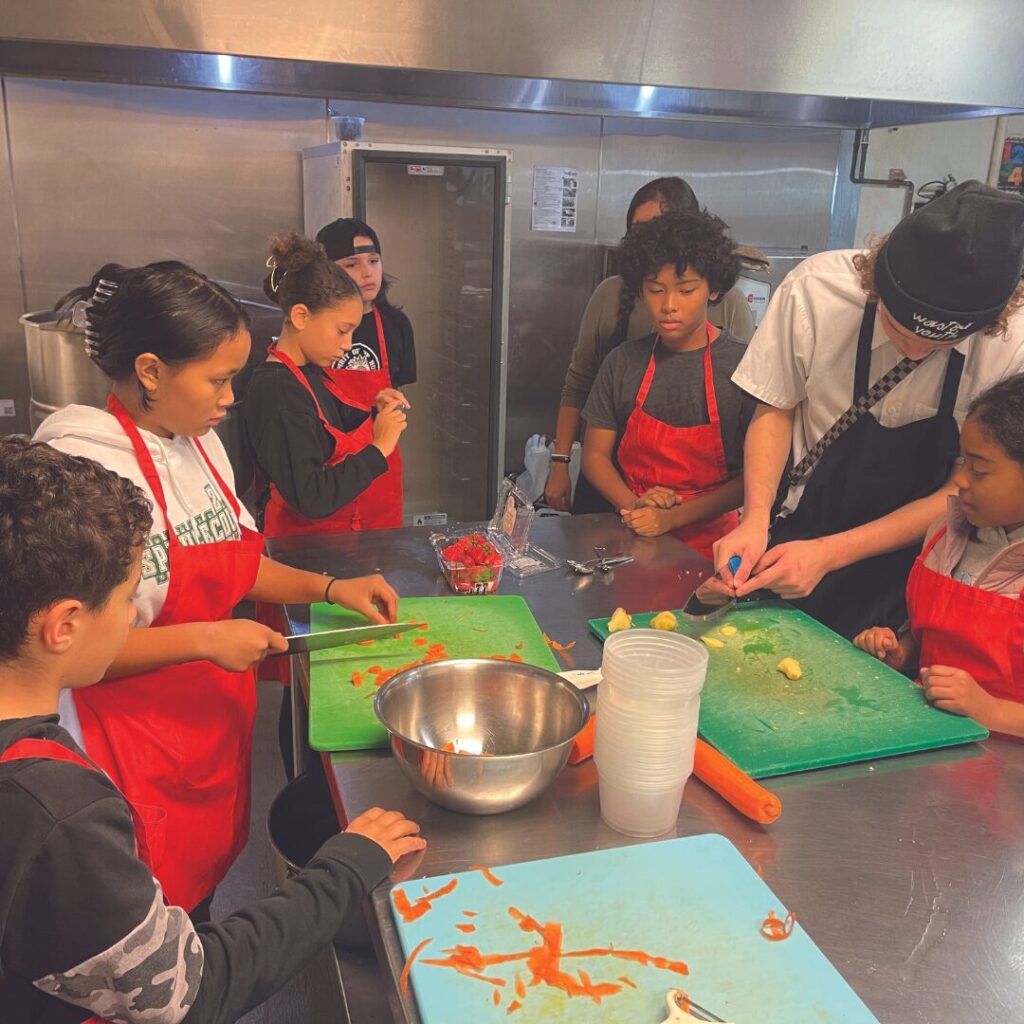
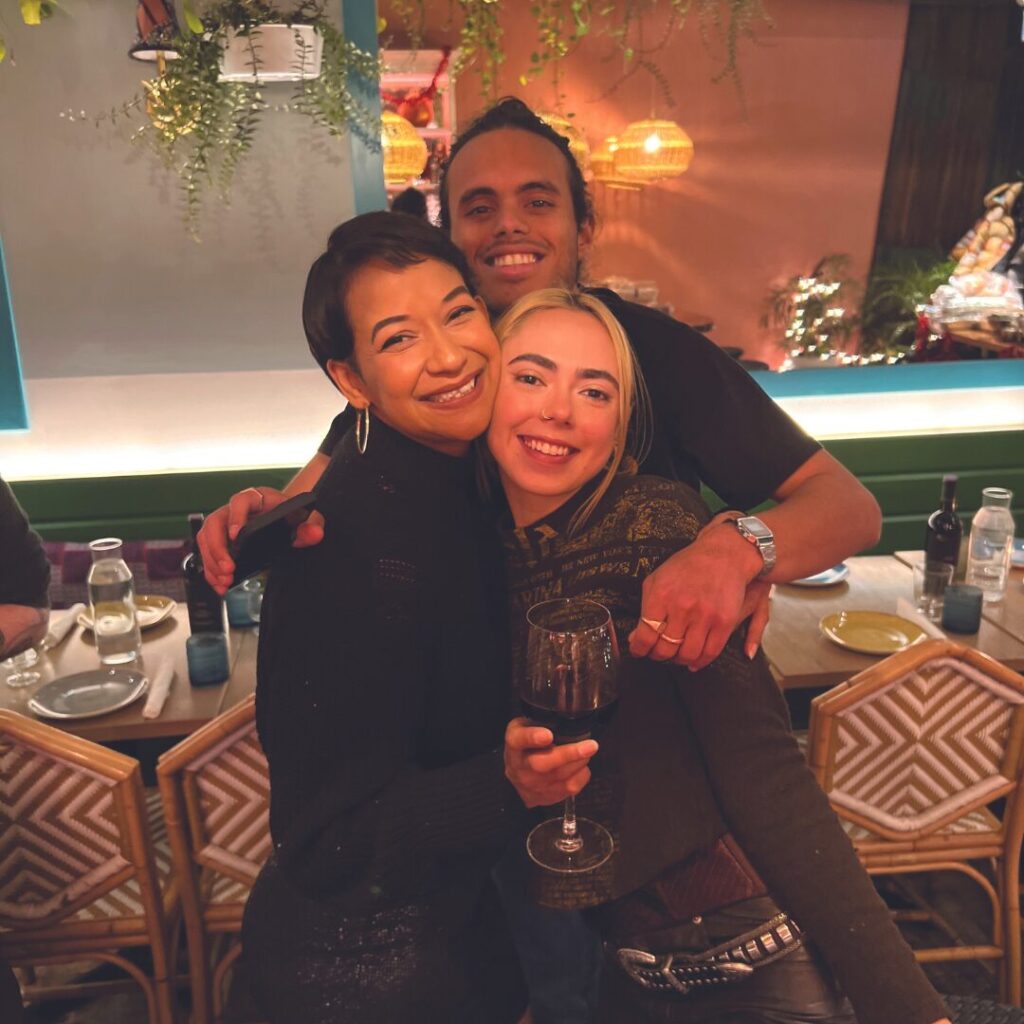
MM: Wow. That must have been an intense time.
AL: I started out consulting, and within a couple of months Janet asked if I would join the business as part of the leadership team. When I officially joined, I was the marketing communications manager, working with Janet and Demetrio Bianco, who is now Gusto 54’s Chief Operating Officer. I was doing social media, which was non-existent at the time. We had a Facebook account for Gusto 101, and then Beyoncé and Jay-Z decided to go for lunch with Blue Ivy at Nervosa and we reacted to that situation and started a
Facebook account for Nervosa.
MM: That’s a hell of a launch post…
AL: Yeah, it was crazy. Now we have a whole marketing department, a president, and director of operations. We have opened so many more restaurants and grown so much over the decade. It’s bananas.
MM: You appear to have a stable and interconnected leadership team with a lot of powerhouse women. Was that an accident of social connection or a deliberate build?
AL: I’ve always seen Janet as someone who is acutely tied to her intuition. And I’ve learned a lot from her because she’s amazing at speaking things into reality. And she’s also made most of her decisions based on what feels right.
Janet wants to work with people she trusts. She immensely trusts Demetrio. He’s been with her pretty much the whole time she’s been in business for herself. Our president and CFO, Juanita Dickson was also a friend prior to working at Gusto 54, and Janet saw her highly successful skills in the marketing space. Janet felt that if she was going to do business, why not do it with people she knows, trusts and enjoys?
As far as selecting women as leaders, Janet obviously understands what it’s like to be a woman in this industry. She felt ignored for a long time. Even with the success of Gusto 101, she wasn’t getting noticed. You’d have to ask Janet if she deliberately chose women for all of these positions, but I can say she definitely is a champion for promoting women in the industry and within the business.
MM: How has your role at the company evolved over the years? What was the genesis of your role as Chief Culture Officer?
AL: The title came before the role, because Gusto 54 is a very entrepreneurial space.
Originally, we saw some gaps in the business that I could fill. We looked at the business and I knew we needed to develop a master brand that would be the umbrella for the business associated with it. I knew we needed to have a clear vision of what our master brand was, so we’d have a clear map to follow. We found an agency, Jackknife, and we developed Gusto 54 and were able to start to structure the company under that vision.
I also worked on setting up the business systems we needed. There was no one else to do this stuff, so I would work on finding people to help us with different systems like our email system or file storage system or online training system.
MM: So, when you came into the business you were aware of Janet’s vision and plan for growth?
AL: When Janet and I had that original conversation about joining the business, I asked her if we were going to do the Jamaican concept restaurant. As friends, we’d traveled to Jamaica together and she’s very close to my family, as I am to hers. It’s something we’d talked about before I was ever in the restaurant industry. She’d gone to New York and visited this amazing Jamaican restaurant there called Miss Lily’s. We went back and checked it out and I thought, “We could do this in Toronto.” That was my
true vision of us working together.
MM: And it happened. You’re co-founder and brand director of Chubby’s Jamaican Kitchen. What was it like to get that hands-on in the restaurant business, to build out and launch such a concept?
AL: It’s very stressful, and I still can’t believe Janet gave me such a huge opportunity. It wasn’t just an opening; it was a property development project. I’d never done that before and the budget was very large, but she trusted me to do it. She believed in me, and it was an amazing opportunity. We pulled the trigger in 2015, and my job was to find a location and a chef.
Going from looking for a commercial space with a kitchen, HVAC and all those things to purchasing a residential building and turning it into a working restaurant is a feat in itself. It took three years.
MM: That’s a long time…
AL: Chubby’s is in a Victorian row house, but we wanted to maintain a sense of authenticity. We ended up restoring a building and adding a building behind it, which is what Chubby’s is. It’s an addition attached to an old building.
MM: Chubby’s is up and running, and it’s made the Michelin list. What’s on your plate now?
AL: I’m responsible for the Gusto 54 team member experience. I focus on the things that make their lives easier at work and make them love their job, so I work on the overarching culture of the company, and how to bring it to life in every single workplace.
Within that, I am responsible for our online training system. I don’t think there are any companies in our industry with such a robust system. We have Gusto University, which is an integrated learning system that trains people to become certified coaches and train others in their role.
The foundation of our training is an online, micro-learning system. Once a team member has moved beyond the orientation stage, they spend five minutes before the start of every shift answering three to five questions to reinforce their knowledge.
MM: Employee training and leadership development are huge, but just part of the total employee value proposition and culture. What about community initiatives?
AL: Gusto Gives Back is another area I focus on. We’ve been doing Mini Chefs now for a number of years, but we’ve changed the format. It’s grown from a one-day program where we partnered with a specific school, to a six-week, after-school program. On the last day, the kids cook a whole dinner and serve their parents.
Our catering chef proposed doing a coat drive, so we did it. We’d never done one before, but one of our company values is “We are entrepreneurial.” We really like to encourage people and help bring their ideas to fruition.
The charitable partner for Chubby’s is Helping Hands Jamaica and I work a little bit more closely with them along with the team at the restaurant. We’ve done some really good things with them including their walkathon.
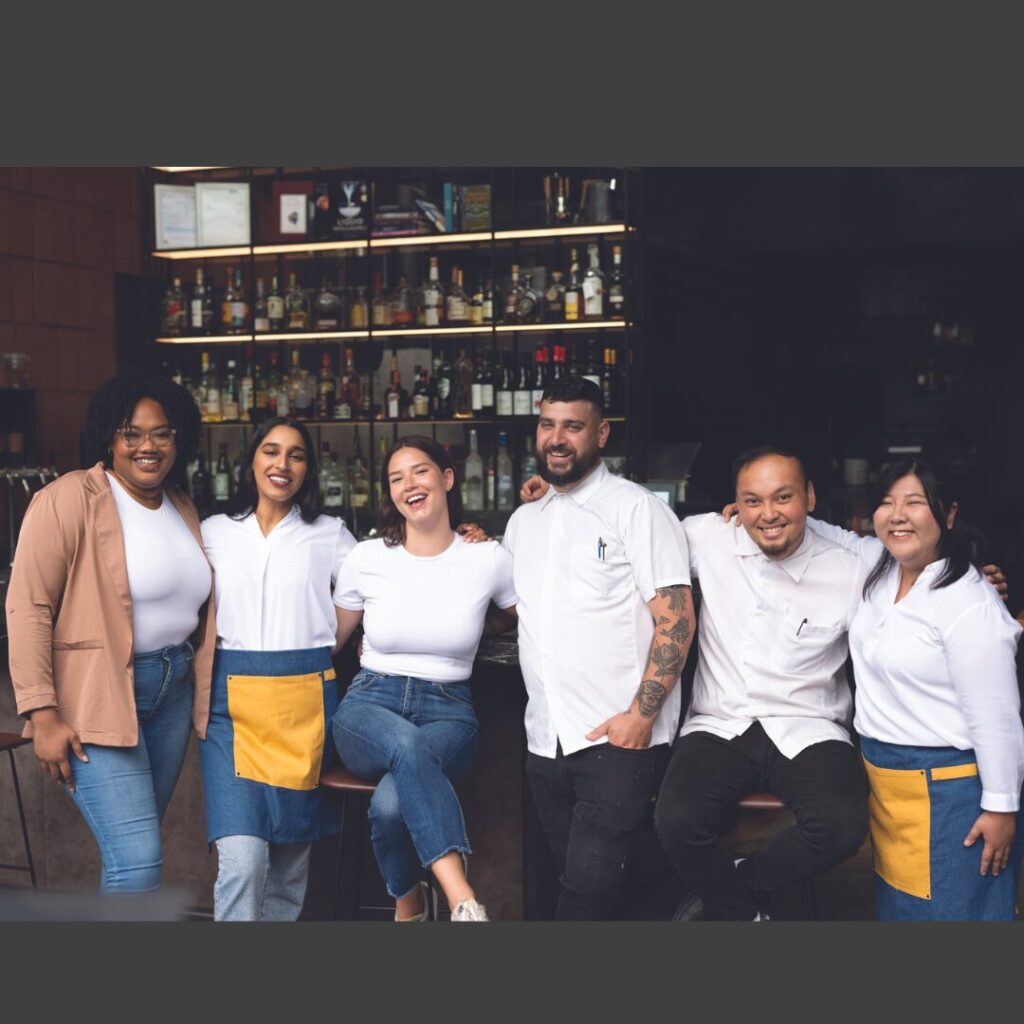
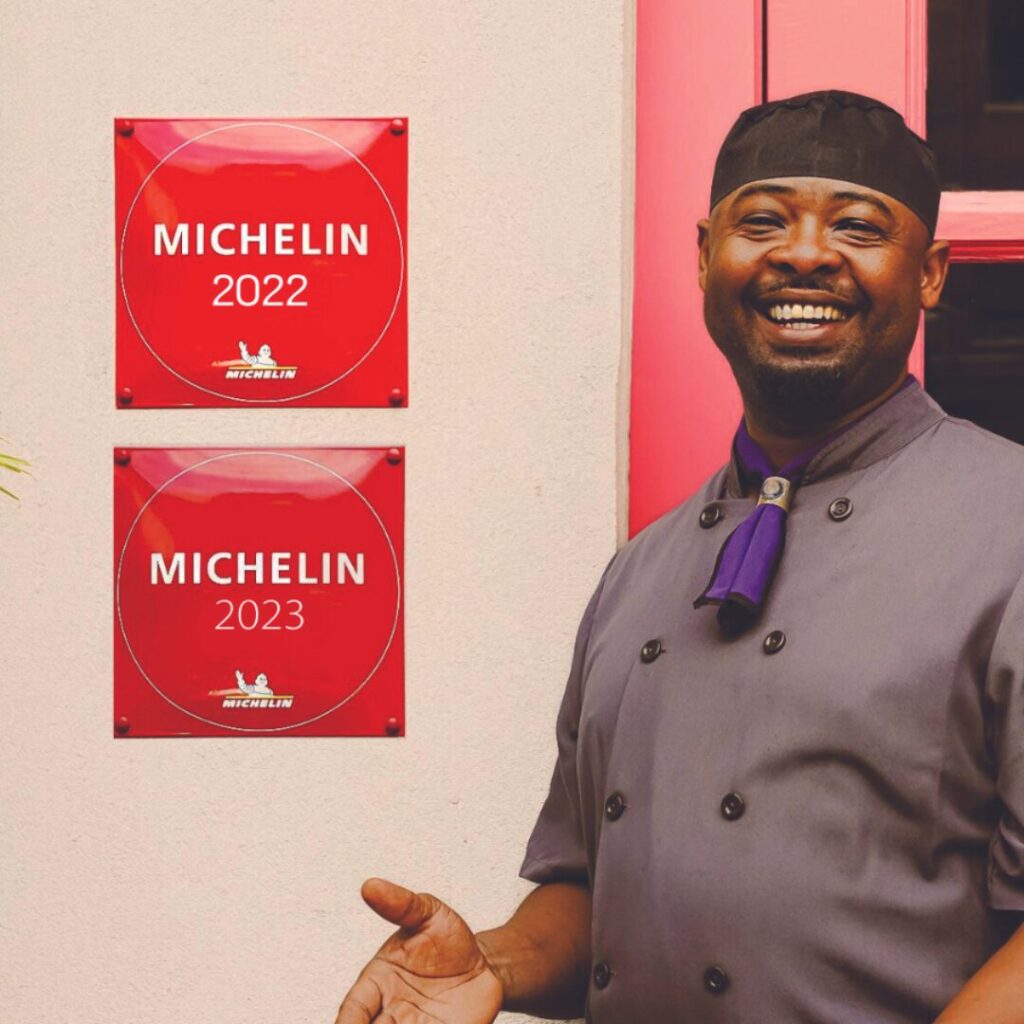
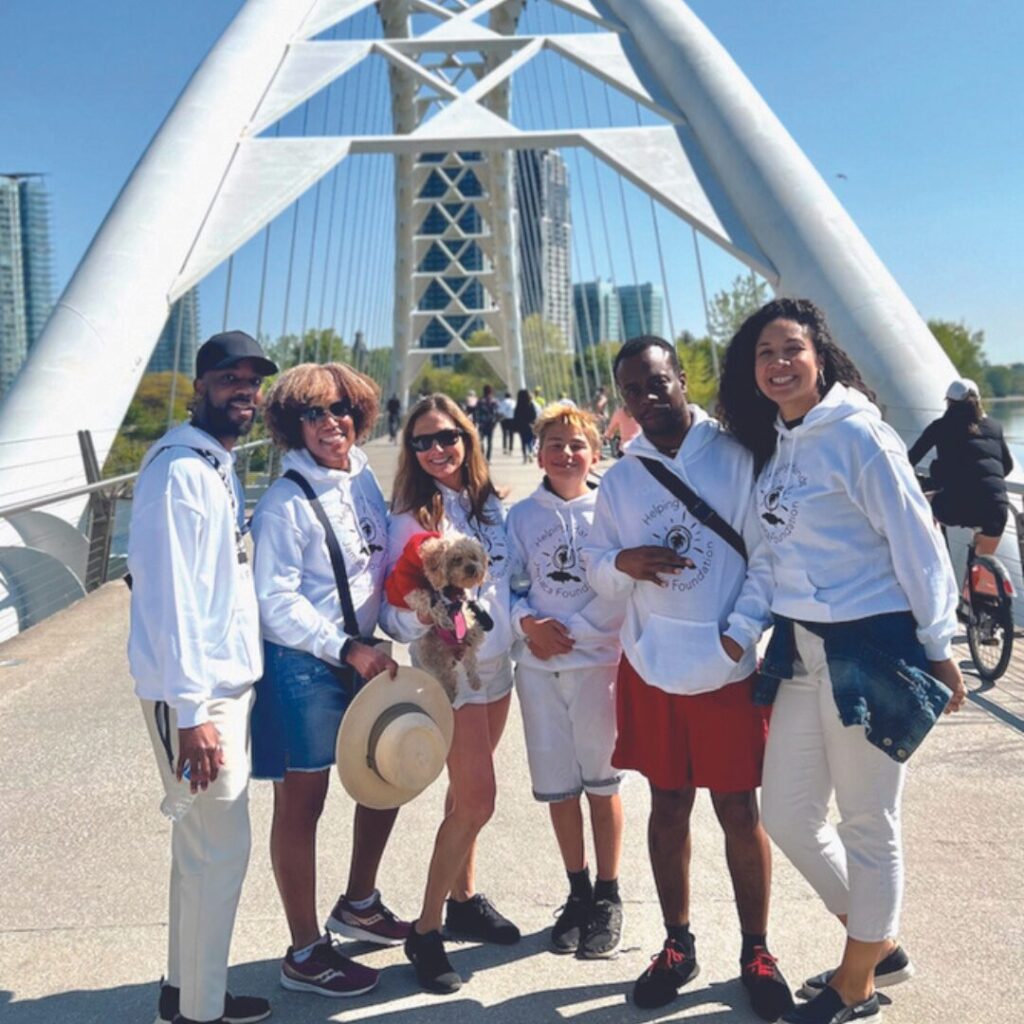
MM: When a company grows the way that Gusto 54 has, it quickly becomes crucial to work on culture as a key brand driver. What are the tangible goals of having a strong culture in place? How does culture add dimension and purpose to the total business?
AL: Our culture is built on the foundation of our values. When we had just two restaurants, we operated inside of values, but we didn’t have anything formally crafted that team members could align to or train on. When Juanita came in the company, she and I worked on the first version of the values and then in 2022, we reworked them. It’s a living document and we tweak them now and again as the business evolves, but we’ve always had seven values.
We use them for everything. We recruit and hire against our values. Our training aligns with our values and we reward according to our values. I found the original values we had and it was all about being awesome– Awesome, Awesome, Awesome–and that’s why our peer recognition program is called the Awesome Awards.
What I’m working on right now is engaging people through recognition and acknowledgment. It has a lot to do with retention and lowering turnover coming out of the pandemic. It was difficult to find people and so when we found good people, we wanted to retain them. I created training that integrates acknowledgement and recognition into team members’ everyday. It just creates a different workspace with a lot of positivity and a feeling team members are actually making a difference and contributing to the overall success of the company.
MM: When it comes to culture building, one of the biggest topics in the industry is how to persuade people to consider restaurants and hospitality as a long-term career.
AL: When we developed the vision for our master brand, it was about asking how we could revolutionize this industry and make people see it as a career option. How would we revolutionize it as women? What’s cool about our company is that Juanita and I both had careers doing completely different things.
I think one of our greatest strengths is that we came into the industry with a different way of looking at everything. We brought different experiences in publishing and marketing — I think that’s what sets us apart. Juanita’s a master marketer, and her experience led us to being named as one of Canada’s Best Managed Companies.
We’ve always looked at ways to revolutionize, so during what I call “the summer of George Floyd,” we asked ourselves how we would respond. We wanted to respond in a way that aligned with our values and really looked at what we could be doing more of and better. We had lots of work to do, but it wasn’t enough to do it within our four walls. We felt that to walk the talk, we needed to be at the forefront of making change happen.
People turned on the hospitality industry, saying we had dropped the ball of DE&I, on sexism and sexual harassment in the workplace, especially in kitchens, and the general experience of women. People were looking at the leadership teams and a lot of them are male dominated. The ownership and power structures are male dominated. There are very few People of Colour at the top.
We asked ourselves where we were failing and where we could do a better job, where could we create opportunities, so people see opportunity to move up, be promoted and see hospitality as a career and not a stepping stone to something else.
MM: IDEA Hospitality is a brilliant concept. Rather than focusing inward and investing in solo DE&I efforts, the program is developing comprehensive leadership development training available to the entire hospitality industry. Gusto 54 is working with Kostuch Media and a Canadian Black- owned and led Inclusion, Diversity, Equity and Anti-Racism (IDEA) consulting firm to develop a full-spectrum program that includes an employee and consumer-visible verification program. This is an enormous undertaking. Why did you choose this approach?
AL: We decided to go big or go home. The vision was to create something that focused on accountability. In order to create that, we needed to have the actual owners, CEOs and leadership open themselves up to self-examination. This could even lead to a paradigm shift they could get excited about, create and implement within their organization.
Part one of the IDEA program is helping and empowering leaders. Part two, IDEA Certified, is all about accountability. Once a company achieves certification, they keep that status by becoming part of the community, helping others and maintaining the certification standards through regular re-assessments.
We see engagement in IDEA Hospitality and then IDEA Certified similar to Canada’s Best Managed Companies—it’s something to be proud of and promote both inside and outside your business.
A lot of people believe they have fundamental knowledge of what DE&I is, but they just don’t. We want to prepare them, then help them create and successfully execute a vision. That’s what this program is about.
I’m excited, but I also know it’s going to take time.
MM: What’s the value of successfully integrating the IDEA Hospitality vision into a company or restaurant?
AL: A culture within a company has lots of touch points, and right now there are two things that are important to me in our company culture right now: people need to want to be at work, contributing in valuable ways they are acknowledged for, and IDEA Hospitality and DE&I in general are very important parts of any company culture. The whole point I would like to see us get to is that these are not actually two, separate things. DE&I is part of culture, and it isn’t a quota system, it’s not only about skin colour or about visible diversity. It’s about understanding what it really means to create a culture and environment of belonging. Where everyone knows that where they work is a place where they can fully express and be their authentic selves. When people are able to do that, they bring a lot of value to businesses.



